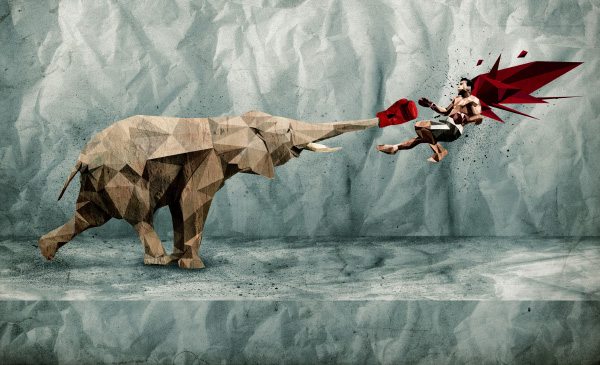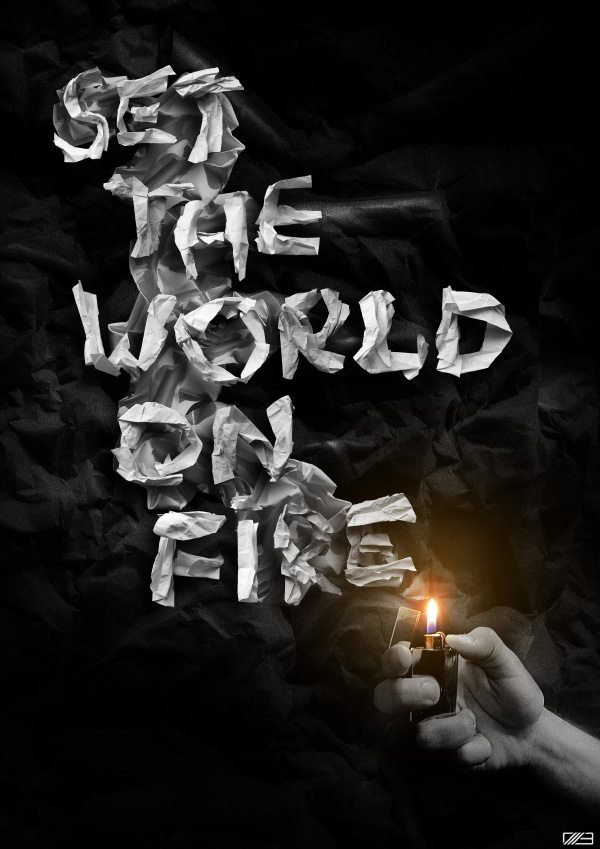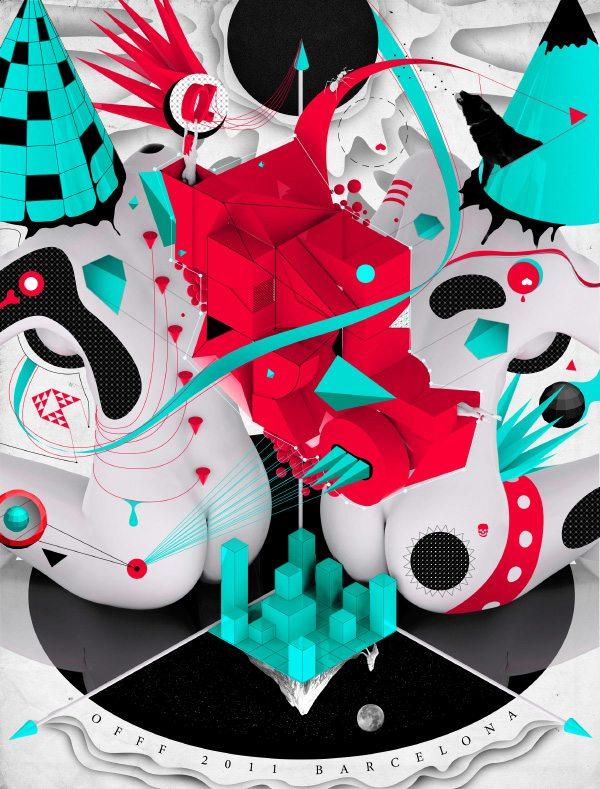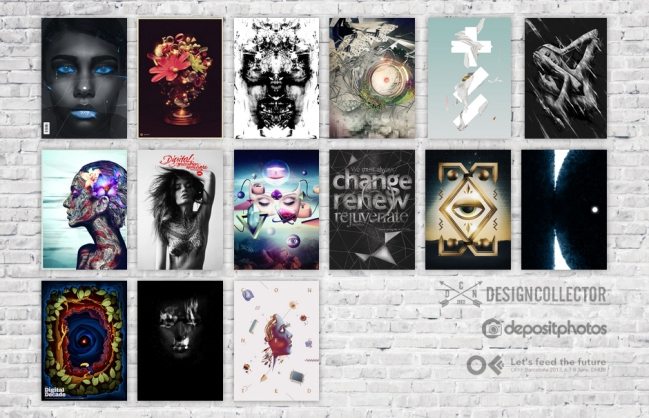Depositphotos presents “THE DIGITAL DECADE” competition winners: Vladimir Tomin (Russia)
Making good on the promise of the series of interviews with the “Digital Decade” contest winners, we give you…
1st Place: Vladimir Tomin
Prize: Wacom Cintiq 13HD
Depositphotos 1 Month Subscription (5 daily images)
Designcollector Magazine – Front Cover
DP: The Digital Decade competition was held three months ago. What has changed in your life since then?
VT: The biggest change is that I finished two projects, and each is more serious than anything I’ve ever done. Also, I returned to academic drawing; I’m doing it now a lot more then I used to.
DP: Have you have won any design contests other than the Digital Decade, and how did you feel about the victory? Ever been proud of a triumph so much that, for example, you’d mention it on your business card? Or is it not such a big deal for you to win something?
VT: I’ve won a few contests before, but not many, because I rarely enter something like that. Although, sometimes some event organizers find my work on the web or are referred to it by a third party and they want my T-shirt prints, want to showcase them somewhere, or put them up for a competition of some sort; that’s always very flattering. The Digital Decade win was great. I found myself in the company of such eminent designers, and that’s always nice; let alone to win this thing – that’s an instant “Wow!” right there! Also, I don’t use business cards because in our town everybody knows everybody. As for the rest of the world, I communicate with them through electronic means.
Water
DP: Art and beauty have always been portrayed as great saviors: “Beauty will save the world,” “Art will save the world,” etc. Some say that design will save the world. What do you think? Can the world be saved through such means, and does it need saving at all?
VT: Well, If we were able to counter the big business of film, music and fashion – pop culture in general – the world would definitely become a better place. The art Industry must remember again how to take risks, it has to go through an en masse blood transfusion, so to speak: remember how to experiment again, go crazy, and mutate. In short, we all have to go back to the drawing board, metaphorically as well as literally – learn how to draw again, with pencil and paper. Just anything other than what’s happening now. Designers in all walks of life can contribute to this process by getting more involved in NON-commercial projects based on pure experimentation, on something never done or even seen before.
DP: YouTube or Vimeo? Canon or Nikon? Analogue or digital? PC or Mac?
VT: Vimeo (I really do not like YouTube; it’s too unstable). Canon (historically). There’s an “old school-new school” sort of distinction between the two, but I feel quite strongly that if there’s something worth doing, it can and must be done properly: therefore analogue it is; digital is the last resort in dire need. Also, 20 years of struggling with a PC have taught me not to dance with the drum and get a Mac. That way you just work with no interruptions.
Nature Strikes Back
DP: How do you feel about microstock agencies and photo banks? In general, what do you think about the possibility/need/desire for an artist to sell his work? How do you rate your art: meaning, what are the criteria you use to either save it, or throw it in the bin?
VT: Stock photography is a beautiful thing! But I don’t see it as a source of income. I tried to sell my work through them, but just for fun! I’m sure, though, there are far more successful examples of this sort of enterprise. Next, it’s extremely difficult to evaluate one’s own art in terms of save-or-delete. Generally, if the idea was bad from the start, it is clear at a very early stage that it’s a bad idea. I can’t exactly describe the mechanism or an algorithm. You do a sketch, and then it’s like it looks right back at you all scrawny and meek, no backtalk, no emotions, and you realize that nothing good will come of it, no matter how much effort you put into it. And it’s not even a question – tо throw away or not to throw away … What’s more important and much more difficult is to answer a different kind of question: when is the project finished? At some point you stop seeing the forest for the trees, when you’ve worked hard and you love every stroke of what you’re doing. And then next day you look at it again and you hate it. It can go on forever and it doesn’t get any easier over time. One has to learn to let go and start something new, otherwise you become a nervous wreck.
Set The World On Fire
DP: Where do you look for sources of inspiration?
VT: The main thing is to free enough space in your head to allow inspiration to fly in on its own. Just relax and prepare for when muses touch down!
DP: Which do you think is more important and why: abstract or concrete design?
VT: The truth is always in the middle. Abstract design is cool and it has great potential to help an artist truly reveal himself; but it leaves a lot of things undone and lots of stories untold. However, concrete design is based on rules and prerequisites and is always a challenge, but of different nature.
DP: Many art departments in the post-Soviet educational institutions are eliminating the subject of “monumental graphics” from their curricula, deeming it “a thing of the past.” You know, those were the kind of studies which would produce the Soviet style sixty-feet-high monuments of the various Lenins, Stalins, Brezhnevs, and so on, all over the Soviet cities. What do you think of that?
VT: Unfortunately, I am not familiar with this field of study and cannot appreciate the quality and reality of the curriculum with competence, but if this is about the cultural foundation of design, about the Soviet school of design and so on, I think it’s a terrific base upon which the post-Soviet art school could build for ages, and getting rid of it without having anything to offer in return is just plain stupid.
Year Zero
DP: Have your loved ones or your family ever told you that you’re doing something you shouldn’t be doing? Like, “Oh, you should have become a notary public or a baker,” “You could have owned your own business by now,” etc.
VT: Never. Our family is very tight and my friends support me in every way.
DP: Have you ever received any training as a graphic designer, and how far have you gone in your studies?
I am a systems engineer by training, and received my B.A. in HGTU at the Institute of Information Technology, Department of Computer Science, majoring in computers. This is one of the most prestigious and the most difficult departments in the Far East of Russia. I never had any training in digital arts, but my major has taught me self-discipline and planning ahead, and I believe it has played a huge role in my professional career. Although, I must admit, if I was an art major and specialized in digital arts, I wouldn’t have to invent so many wheels along the way. Is the degree necessary? No, not particularly. If you put in enough effort and time you can crack anything open on your own. But is degree useful? You bet!
U












